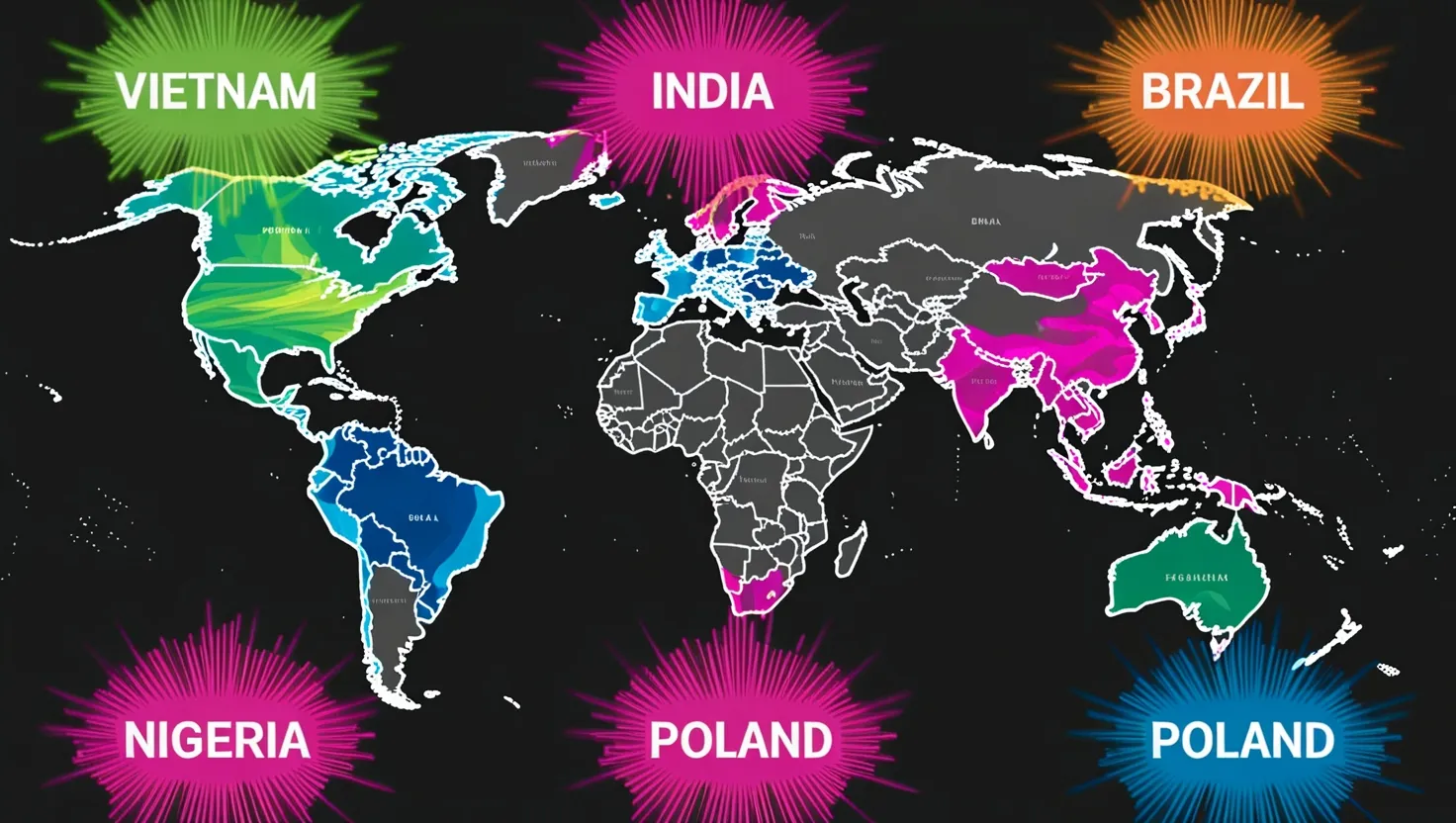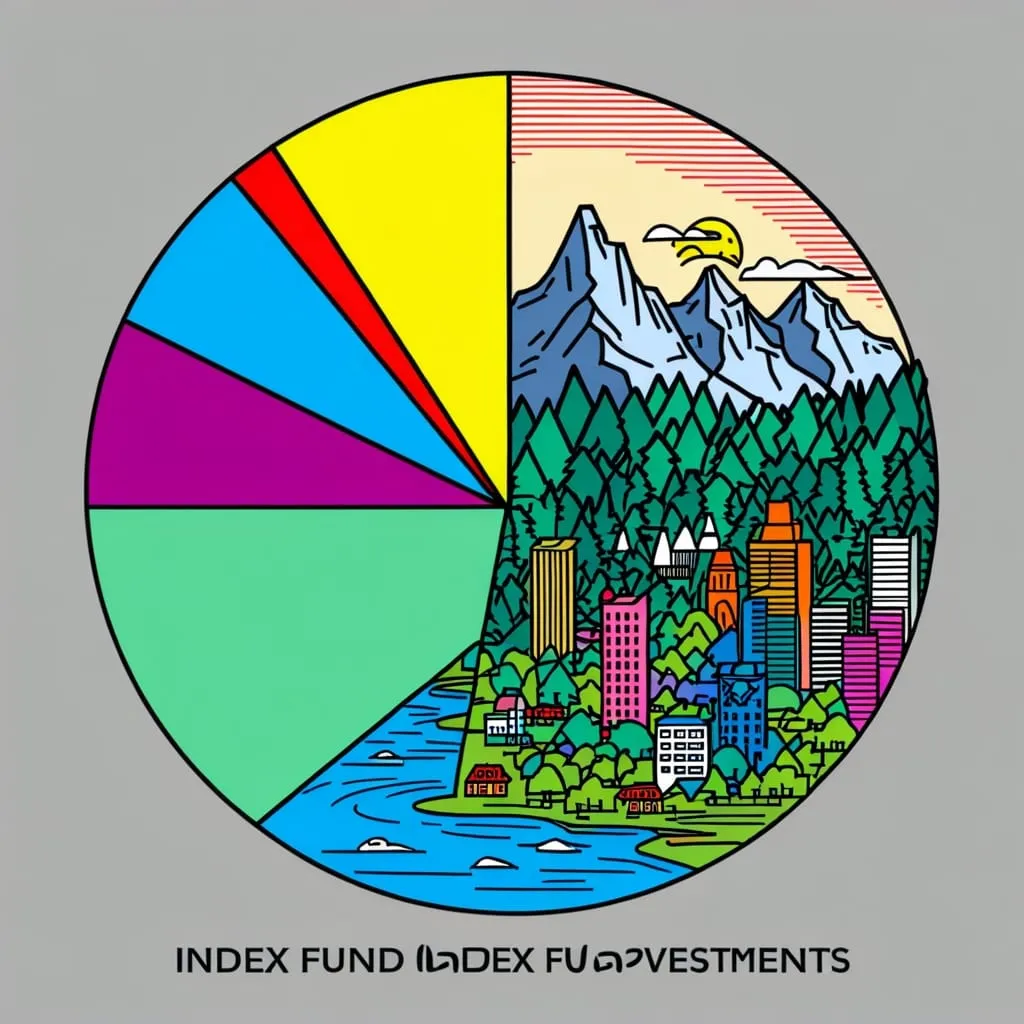In the ever-evolving landscape of global trade, several emerging markets are making significant waves, challenging traditional economic powerhouses and redefining the contours of international business. As we explore these dynamic regions, it becomes clear that each brings its own unique set of advantages, challenges, and growth potential.
Let’s start with Vietnam, a country that has transformed itself into a manufacturing powerhouse over the past decade. Vietnam’s journey to becoming one of the world’s top 20 trading economies is nothing short of remarkable. The country has maintained a trade surplus for eight consecutive years, with its export value skyrocketing from $1.77 billion in 2016 to over $28 billion in 2023. This success is largely driven by its manufacturing sector, which now accounts for 85% of its total export value.
Manufacturing in Vietnam is not just about cheap labor; it has evolved into a high-productivity sector, attracting giants like Samsung, Foxconn, and Nike. These companies have invested heavily in Vietnam, drawn by its strategic location, robust infrastructure, and competitive labor costs. For instance, Samsung has invested a staggering $18 billion, making Vietnam the world’s largest manufacturer of Samsung products. This transformation has not only boosted Vietnam’s economic growth but also expanded its economic partnerships and diversified its export markets through numerous free trade agreements.
Moving to the other side of the globe, India is making a significant impact on the global IT services sector. India’s tech industry has grown exponentially, driven by a vast pool of skilled engineers and a favorable business environment. The country has become a go-to destination for IT outsourcing, with major companies like Infosys, Wipro, and TCS leading the charge. India’s tech sector is not just about cost-effective solutions; it is also about innovation and quality. The country is home to numerous startups and tech hubs, such as Bengaluru and Hyderabad, which are fostering a culture of technological advancement.
India’s rise in the tech sector has global implications. It is challenging the dominance of traditional IT hubs like Silicon Valley and creating new opportunities for collaboration and innovation. For instance, many global tech giants have set up their research and development centers in India, leveraging the country’s talent pool to drive innovation. This shift is not only benefiting India but also reshaping the global IT landscape, making it more diverse and competitive.
In the Americas, Brazil is asserting its dominance in the agricultural sector while pioneering sustainable farming practices. Brazil is the world’s sixth-largest greenhouse gas emitter, with agriculture being a significant contributor to these emissions. However, the country is taking bold steps to mitigate this impact. Initiatives like the Low-Carbon Agriculture (ABC) Plan and the National Program for the Conversion of Degraded Pastures into Production Systems are aimed at reducing greenhouse gas emissions and promoting sustainable agriculture.
Brazil’s commitment to sustainable agriculture is not just an environmental imperative; it is also an economic strategy. The country is leveraging its vast agricultural resources to become a leader in sustainable farming practices, attracting investments and creating new market opportunities. This approach is influencing global agricultural practices, encouraging other countries to adopt more sustainable methods. As the world grapples with climate change, Brazil’s model could become a benchmark for sustainable agriculture.
In Africa, Nigeria is experiencing a fintech revolution that is transforming its financial landscape. The country’s fintech industry is booming, driven by the widespread adoption of mobile banking and digital payment systems. Companies like Interswitch and Paystack are leading this charge, providing innovative financial solutions that are reaching millions of Nigerians.
Nigeria’s fintech sector is addressing a critical need – financial inclusion. Many Nigerians lack access to traditional banking services, but mobile banking is changing this narrative. The sector is also attracting significant foreign investment, with companies like Visa and Mastercard investing in Nigerian fintech startups. This growth is not just local; it is influencing the broader African fintech landscape, making Nigeria a hub for financial innovation in the region.
Lastly, in Europe, Poland is emerging as a strategic player in the continent’s supply chains. Poland’s location at the heart of Europe makes it an ideal hub for logistics and manufacturing. The country has invested heavily in its infrastructure, including international airports, seaports, and rail links, facilitating smooth production flow and transportation.
Poland’s strategic position is particularly important in the context of the ongoing geopolitical shifts in Europe. As companies look to diversify their supply chains and reduce reliance on single countries, Poland is becoming an attractive alternative. The country is already a significant player in the automotive and electronics manufacturing sectors, producing goods for major brands. This trend is expected to continue, with Poland playing a crucial role in reshaping Europe’s supply chain dynamics.
As these emerging markets continue to grow, they are not just influencing their respective regions but also reshaping global trade dynamics. Vietnam’s manufacturing prowess, India’s tech innovation, Brazil’s sustainable agriculture, Nigeria’s fintech revolution, and Poland’s logistical advantages are all contributing to a more diverse and interconnected global economy.
These markets are challenging traditional economic powers in various ways. They are offering new investment opportunities, driving innovation, and creating new market segments. For instance, Vietnam’s rise as a manufacturing hub is forcing companies to rethink their supply chain strategies, while India’s tech sector is pushing the boundaries of IT services. Brazil’s sustainable agriculture practices are setting new standards for environmental responsibility, and Nigeria’s fintech industry is redefining financial inclusion. Poland’s logistical capabilities are making it a critical link in European supply chains.
However, these markets also face unique challenges. Vietnam needs to continue improving its human resources and infrastructure to sustain its manufacturing growth. India must address issues like data privacy and cybersecurity to maintain its position in the global IT sector. Brazil’s sustainable agriculture initiatives require continued investment and policy support. Nigeria’s fintech sector needs to navigate regulatory challenges to ensure long-term growth. Poland must balance its economic growth with environmental and social responsibilities.
Despite these challenges, the potential for long-term growth in these markets is immense. As global trade continues to evolve, these emerging markets are poised to play increasingly significant roles. They are not just followers in the global economic narrative; they are becoming leaders, driving innovation, and setting new standards.
In conclusion, the rise of these emerging markets is a testament to the dynamic nature of global trade. Each market brings its own strengths and challenges, but together, they are reshaping the economic landscape. As we look to the future, it is clear that these markets will continue to influence and shape global business dynamics in profound ways.






